Signing a legal document can feel like a routine task, yet it carries weighty consequences if approached without care. Many people underestimate how a few overlooked clauses or ambiguous terms can later trigger disputes, financial losses, or long-term obligations. Whether it is a business contract, lease agreement, or personal settlement, taking a measured approach is critical. Understanding your rights and the implications of each clause prevents mistakes that are often costly to correct. High-quality guidance is essential to safeguard interests effectively. This article highlights practical strategies every individual should follow before putting their signature on any paper, offering five actionable tips to avoid common pitfalls and protect yourself legally.
Read Every Clause Carefully

The most fundamental step is to review every part of the document, including the sections that seem routine. Skipping over “standard” clauses often leads to unexpected obligations. Legal language can be precise but tricky, and even minor wording differences can change meaning significantly. Take time to read definitions, exceptions, and conditions. Look for deadlines, renewal terms, and obligations that might create long-term responsibilities. If a section is unclear, highlight it for further clarification. Carefully examining all clauses minimizes the risk of signing under assumptions that later prove incorrect. Document review acts as the first line of defense against future disputes or financial surprises.
Verify the Authenticity and Authority
Before signing, confirm the legitimacy of the document and the parties involved. Check that the entity issuing the document has the authority to do so, and that names, titles, and dates are accurate. In business agreements, ensure the signatory has the power to bind the organization legally. For personal contracts, verify the identity of other parties and confirm that the document aligns with relevant laws or regulations. Authentication steps prevent later claims of fraud or invalid agreements. Verification also helps identify forged or altered documents early, reducing the potential for legal complications and protecting both time and resources.
Understand the Implications of Key Terms

Contracts often contain terms with long-term or hidden consequences. Focus on areas that define financial obligations, liability, dispute resolution, and termination conditions. Consider scenarios that may arise and how each clause affects your rights or responsibilities. For example, automatic renewal clauses or penalty fees may seem minor initially but can accumulate over time. Understanding the scope of indemnity or liability clauses can prevent unexpected financial exposure. Seeking professional clarification for complex sections is preferable to assuming understanding, as even small misinterpretations can lead to costly errors.
Keep Records and Copies
Once a document is signed, maintaining organized records is essential. Keep copies of the signed document and any related correspondence, amendments, or notes taken during review. Document retention ensures you have reference points in case of disputes or future questions regarding obligations. Digital copies with timestamps or secure storage systems add an extra layer of protection. Accurate record-keeping also facilitates compliance, demonstrates good faith in case of disagreements, and provides a reliable audit trail. Being organized from the outset reduces confusion and helps resolve issues efficiently if they arise.
Seek Professional Review

Engaging a legal professional to review the document provides an additional safety layer. Lawyers can interpret complex wording, identify hidden risks, and suggest amendments or clarifications. Even if the document appears straightforward, expert input often uncovers issues that non-professionals miss. A professional review can also provide guidance on negotiating more favorable terms, reducing potential obligations, or adding protective language. This precaution is particularly critical for high-value contracts, agreements with extended commitments, or documents containing technical or legal terminology. Investing in professional advice is a preventative step that can save substantial time, money, and stress in the future.
Protecting yourself before signing any legal document requires diligence, verification, and understanding. Reading each clause carefully, confirming the authenticity of parties, assessing key terms, obtaining professional input, and maintaining organized records collectively reduce the risk of legal and financial pitfalls. By adopting these five strategies, …






 Objective assessment serves as a critical foundation in settling disputes. It strips away emotions and biases, focusing solely on the facts at hand. This clarity is essential for both parties seeking resolution. By evaluating the strengths and weaknesses of each side’s case, individuals gain a clearer perspective. An unbiased analysis can reveal overlooked details that may significantly influence outcomes. Third-party evaluators often bring valuable expertise to this process. Their insights can help identify potential pitfalls or advantages that might not be immediately obvious to those directly involved.
Objective assessment serves as a critical foundation in settling disputes. It strips away emotions and biases, focusing solely on the facts at hand. This clarity is essential for both parties seeking resolution. By evaluating the strengths and weaknesses of each side’s case, individuals gain a clearer perspective. An unbiased analysis can reveal overlooked details that may significantly influence outcomes. Third-party evaluators often bring valuable expertise to this process. Their insights can help identify potential pitfalls or advantages that might not be immediately obvious to those directly involved. Effective negotiation strategies are crucial when it comes to settling a case. They can shape the outcome significantly. Having an objective evaluation allows parties to approach negotiations with clarity. It helps identify strengths and weaknesses in each side’s position. This insight fosters more productive discussions. Establishing clear priorities is essential. Knowing what matters most provides direction during negotiations. It ensures that both sides focus on resolving key issues rather than getting sidetracked by minor points.
Effective negotiation strategies are crucial when it comes to settling a case. They can shape the outcome significantly. Having an objective evaluation allows parties to approach negotiations with clarity. It helps identify strengths and weaknesses in each side’s position. This insight fosters more productive discussions. Establishing clear priorities is essential. Knowing what matters most provides direction during negotiations. It ensures that both sides focus on resolving key issues rather than getting sidetracked by minor points.
 During the initial consultation with the lawyer, a thorough evaluation of your case can be expected. This is your opportunity to provide details about the accident, injuries sustained, and any evidence you may have. The lawyer will ask specific questions to gather all relevant information needed to assess the strength of your case.
During the initial consultation with the lawyer, a thorough evaluation of your case can be expected. This is your opportunity to provide details about the accident, injuries sustained, and any evidence you may have. The lawyer will ask specific questions to gather all relevant information needed to assess the strength of your case. If things don’t go as you’d expected when negotiating with the insurance company, the case will be filed. This is where your lawyer will advocate for you and present your case before the judge and jury. Having a skilled attorney by your side can surely make all the difference in going through all complex legal
If things don’t go as you’d expected when negotiating with the insurance company, the case will be filed. This is where your lawyer will advocate for you and present your case before the judge and jury. Having a skilled attorney by your side can surely make all the difference in going through all complex legal 



 Imagine finding your dream property only to discover that there is a cloud over the property title. Property title disputes can arise due to various reasons, such as conflicting ownership claims or undisclosed liens on the property. These disputes can delay or even derail a real estate transaction, causing frustration and financial losses for all parties involved.
Imagine finding your dream property only to discover that there is a cloud over the property title. Property title disputes can arise due to various reasons, such as conflicting ownership claims or undisclosed liens on the property. These disputes can delay or even derail a real estate transaction, causing frustration and financial losses for all parties involved. Undisclosed defects can range from structural issues like a leaky roof or faulty foundation to environmental concerns such as mold or termite infestations. These issues can cost the new
Undisclosed defects can range from structural issues like a leaky roof or faulty foundation to environmental concerns such as mold or termite infestations. These issues can cost the new 
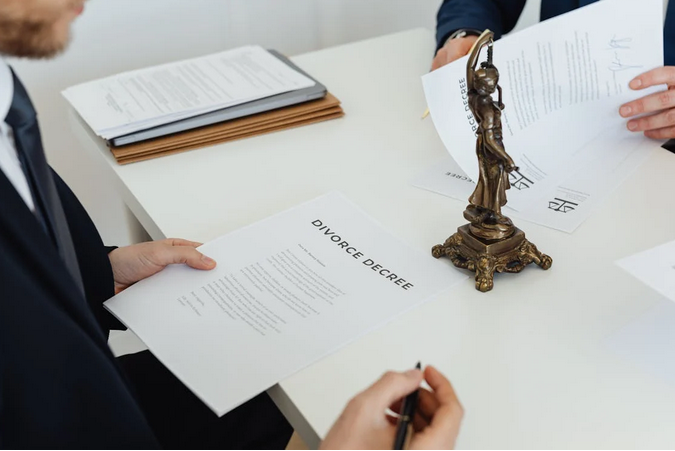


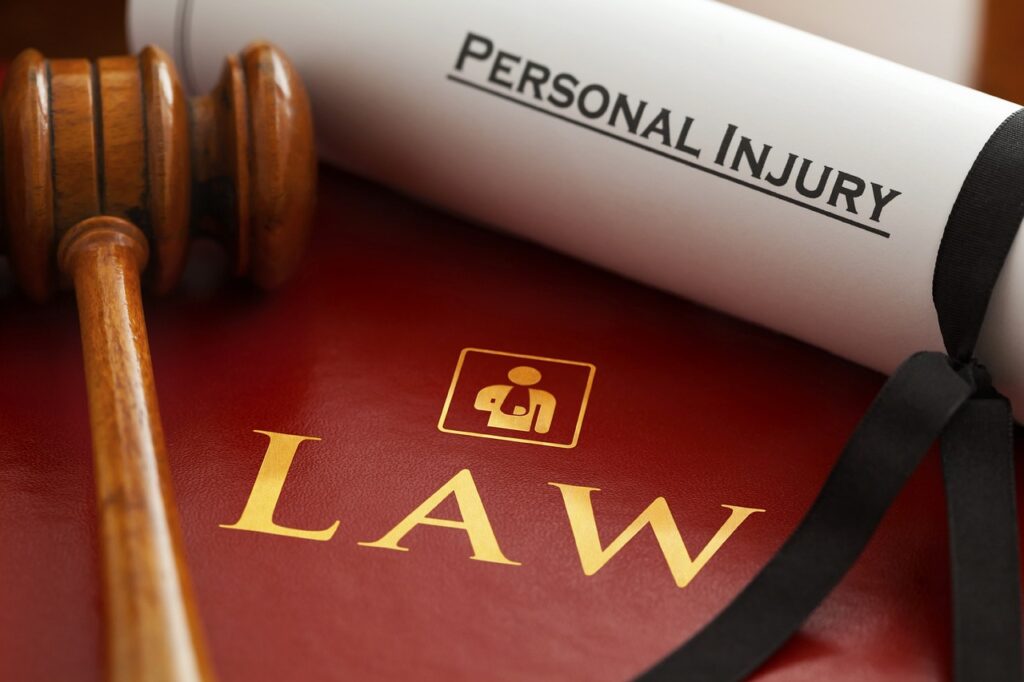
 The statute of limitations sets the period during which you may choose to file a lawsuit for your personal injury claim. But if you procrastinate on filing your case for too long, it may be barred by this law. Every state has its own specific deadline for filing personal injury claims, and they vary depending on the type of injury and circumstances surrounding it.
The statute of limitations sets the period during which you may choose to file a lawsuit for your personal injury claim. But if you procrastinate on filing your case for too long, it may be barred by this law. Every state has its own specific deadline for filing personal injury claims, and they vary depending on the type of injury and circumstances surrounding it. Determining fault is another crucial factor in whether or not an attorney will represent you in the court. If you’re found to be just even partially at fault for the accident causing your own injuries, it can greatly impact your chances of receiving compensation. As a potential client, you may feel like you carry too much blame for the accident.
Determining fault is another crucial factor in whether or not an attorney will represent you in the court. If you’re found to be just even partially at fault for the accident causing your own injuries, it can greatly impact your chances of receiving compensation. As a potential client, you may feel like you carry too much blame for the accident.
 Let’s start from the basics. As an influencer, you need to protect your content from being reproduced without your permission. A legal agreement ensures that any content you create stays protected and allows for proper compensation if it is used in any other way than what was agreed upon. This is especially important when working with brands or sponsors, as they may want to use your work beyond the scope of the original agreement. In fact, legal agreements often specify the length of time a brand or sponsor can use your content.
Let’s start from the basics. As an influencer, you need to protect your content from being reproduced without your permission. A legal agreement ensures that any content you create stays protected and allows for proper compensation if it is used in any other way than what was agreed upon. This is especially important when working with brands or sponsors, as they may want to use your work beyond the scope of the original agreement. In fact, legal agreements often specify the length of time a brand or sponsor can use your content.
 One of the most important things to remember when using copyrighted material is that it can only be used in the public domain. Public domain materials have fallen out of copyright protection, meaning they are no longer restricted by copyright law and can be freely used without permission or restriction.
One of the most important things to remember when using copyrighted material is that it can only be used in the public domain. Public domain materials have fallen out of copyright protection, meaning they are no longer restricted by copyright law and can be freely used without permission or restriction.


 The first and most common reason for a green card renewal denial is committing a crime. If you have been convicted of a crime, it doesn’t matter how long ago it was or how minor the offense was, your green card will be denied. Even if you only spent a few days in jail or paid a small fine, you will still be denied. The only way to fix this issue is to get a pardon from the president for your crime. If you have been convicted of a felony, you will not be able to get a pardon, and you will not be able to renew your green card.
The first and most common reason for a green card renewal denial is committing a crime. If you have been convicted of a crime, it doesn’t matter how long ago it was or how minor the offense was, your green card will be denied. Even if you only spent a few days in jail or paid a small fine, you will still be denied. The only way to fix this issue is to get a pardon from the president for your crime. If you have been convicted of a felony, you will not be able to get a pardon, and you will not be able to renew your green card. If USCIS believes you used fraudulent documents to get your green card, they will deny your renewal. This usually happens when people use fake marriages, or fake employment offers to get a green card. If you are caught in this situation, the only way to fix it is to hire a green card renewal lawyer and hope that they can get your green card approved. If you’re in this predicament, it is highly advisable that you seek professional legal help.
If USCIS believes you used fraudulent documents to get your green card, they will deny your renewal. This usually happens when people use fake marriages, or fake employment offers to get a green card. If you are caught in this situation, the only way to fix it is to hire a green card renewal lawyer and hope that they can get your green card approved. If you’re in this predicament, it is highly advisable that you seek professional legal help.
 Baby steps first; an immigration attorney can help you with each and every step in the process of migrating to the United States. They know exactly what needs to be done and in what order things need to get filed. This will save you a lot of time, money, and energy that would be spent on research.
Baby steps first; an immigration attorney can help you with each and every step in the process of migrating to the United States. They know exactly what needs to be done and in what order things need to get filed. This will save you a lot of time, money, and energy that would be spent on research. If your application for a visa or green card is denied, an immigration attorney can help you appeal the decision. They will look over your case and see if there are any grounds for an appeal. If there are, they will help you file the necessary paperwork and represent you in court. There are many different things that an immigration attorney can do for you.
If your application for a visa or green card is denied, an immigration attorney can help you appeal the decision. They will look over your case and see if there are any grounds for an appeal. If there are, they will help you file the necessary paperwork and represent you in court. There are many different things that an immigration attorney can do for you.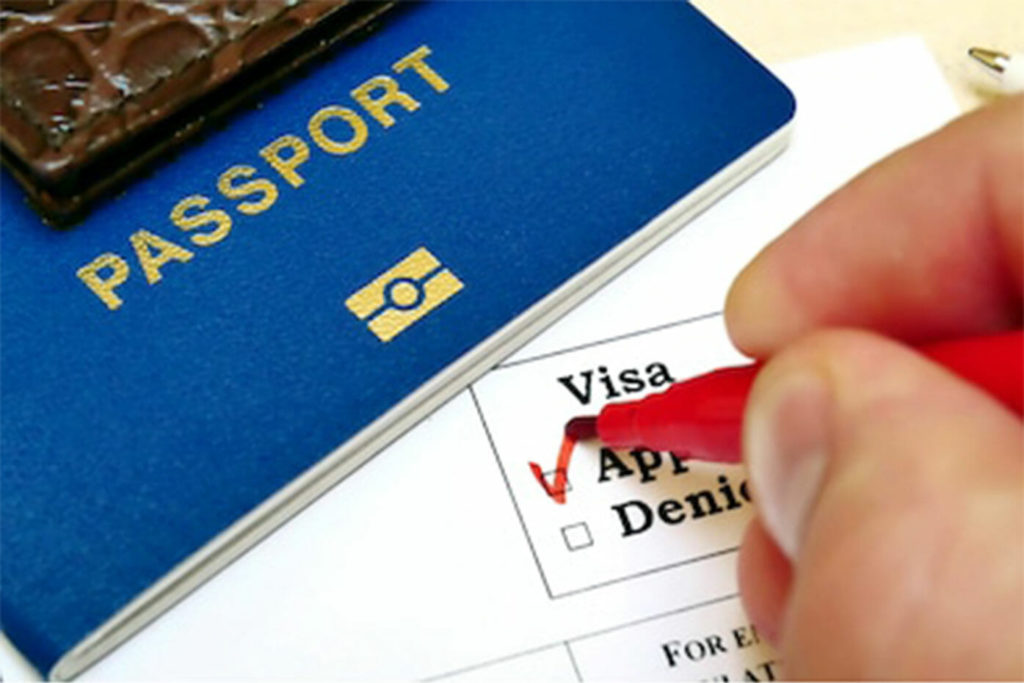
 High Chances of Getting your Visa Approved
High Chances of Getting your Visa Approved

 Because there is a deadline for filing a case, finding the right personal injury attorney fast and quick is a must. This may prevent you to search far and wide for the best attorney out there. However, you can decide whether to hire an attorney or not during your first meeting. You only have to be observant and inquisitive on details that are in front of you.
Because there is a deadline for filing a case, finding the right personal injury attorney fast and quick is a must. This may prevent you to search far and wide for the best attorney out there. However, you can decide whether to hire an attorney or not during your first meeting. You only have to be observant and inquisitive on details that are in front of you. Notice the Use of Technology
Notice the Use of Technology
 When hiring an attorney, one of the essential things you need to consider is the level of experience. In other words, when dealing with a lawyer experienced in injury law, there are various benefits you can get. But when you do not follow the proper steps, you might end up with the wrong attorneys.
When hiring an attorney, one of the essential things you need to consider is the level of experience. In other words, when dealing with a lawyer experienced in injury law, there are various benefits you can get. But when you do not follow the proper steps, you might end up with the wrong attorneys. When hiring an attorney, it is essential to create your budget to know the amount you are willing and ready to spend in this process. But one of the common mistakes that most people commit is paying a lawyer upfront. It is advisable to understand that most of these attorneys work on a contingency basis, meaning you pay them when they complete your case successfully.
When hiring an attorney, it is essential to create your budget to know the amount you are willing and ready to spend in this process. But one of the common mistakes that most people commit is paying a lawyer upfront. It is advisable to understand that most of these attorneys work on a contingency basis, meaning you pay them when they complete your case successfully.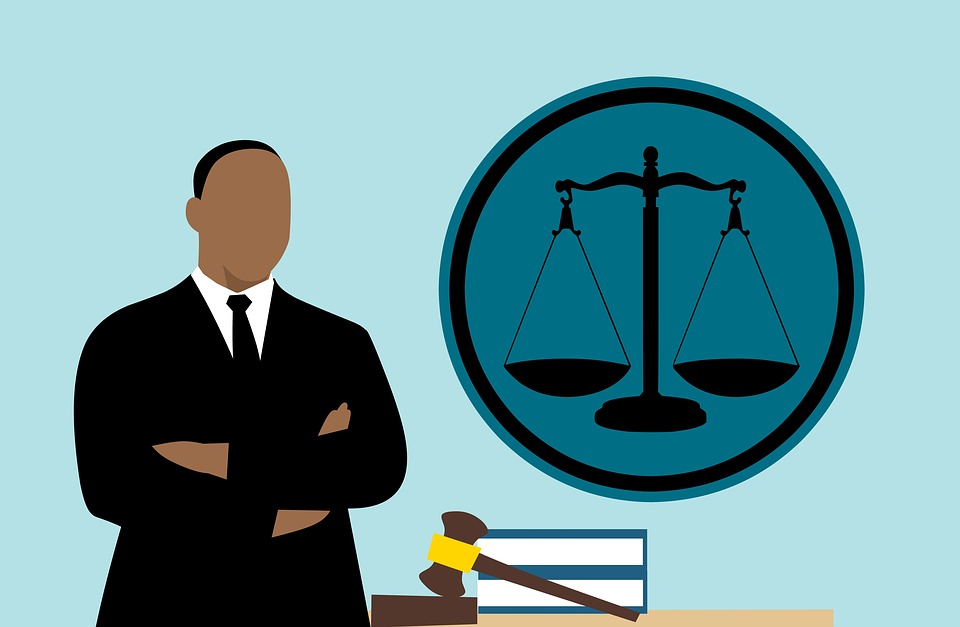

 Several countries have already legalized the use of marijuana for medical purposes, and some of them have gone a step further to legalize recreational use. However, in most countries around the world, possession or use of marijuana is still illegal. There are many reasons why more states should consider legalizing the use of medical marijuana. Unlike the recreational use of marijuana, medical marijuana has cannabidiol and tetrahydrocannabinol content. Some of the reasons to support the legalization of medical marijuana are highlighted below.
Several countries have already legalized the use of marijuana for medical purposes, and some of them have gone a step further to legalize recreational use. However, in most countries around the world, possession or use of marijuana is still illegal. There are many reasons why more states should consider legalizing the use of medical marijuana. Unlike the recreational use of marijuana, medical marijuana has cannabidiol and tetrahydrocannabinol content. Some of the reasons to support the legalization of medical marijuana are highlighted below.
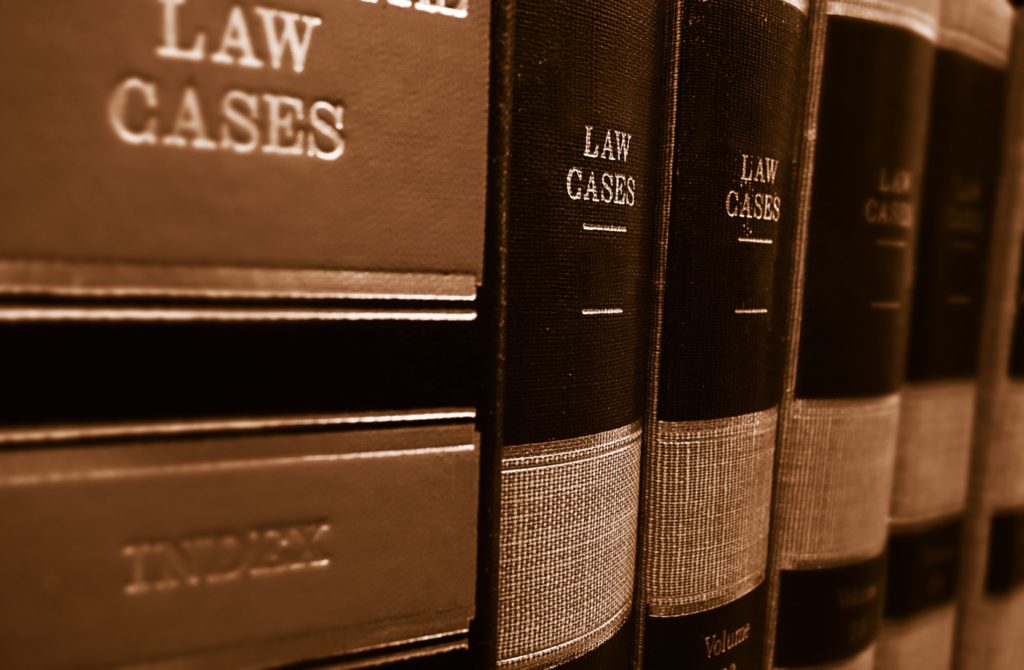

 The other thing you should not forget to factor out is the legal fees charged for their services. There are several reasons why you should seek the services of a criminal defense attorney. They include:
The other thing you should not forget to factor out is the legal fees charged for their services. There are several reasons why you should seek the services of a criminal defense attorney. They include: charged and seek their services, they will gather their team, analyze your situation and set up a strong defense. This is crucial in ensuring you win your case because they can point out several areas where you were not treated as required by the law.…
charged and seek their services, they will gather their team, analyze your situation and set up a strong defense. This is crucial in ensuring you win your case because they can point out several areas where you were not treated as required by the law.…

 Not looking at legal fees and other charges is also a common mistake. It is good to remember that you may have to incur many expenses other than hiring an immigration lawyer. Thus, it becomes imperative to sit with prospective attorneys and come up with an estimate of the amount you are likely to incur for the entire process. This will help you compare charges of different immigration experts and choose one that charges an affordable fee.
Not looking at legal fees and other charges is also a common mistake. It is good to remember that you may have to incur many expenses other than hiring an immigration lawyer. Thus, it becomes imperative to sit with prospective attorneys and come up with an estimate of the amount you are likely to incur for the entire process. This will help you compare charges of different immigration experts and choose one that charges an affordable fee.